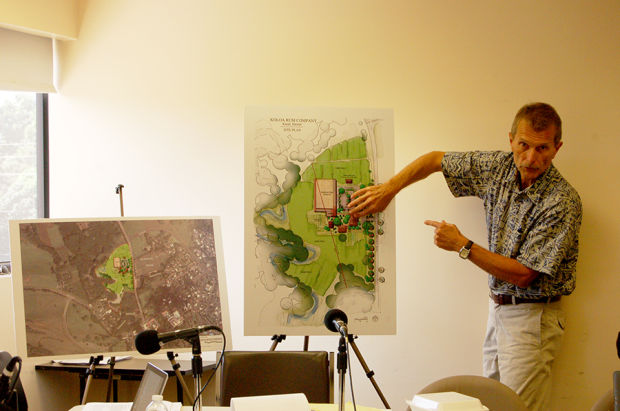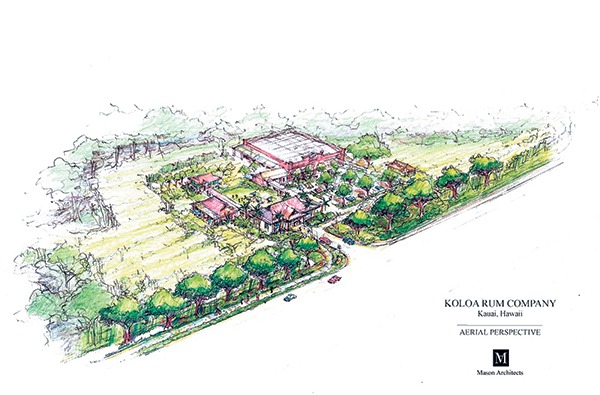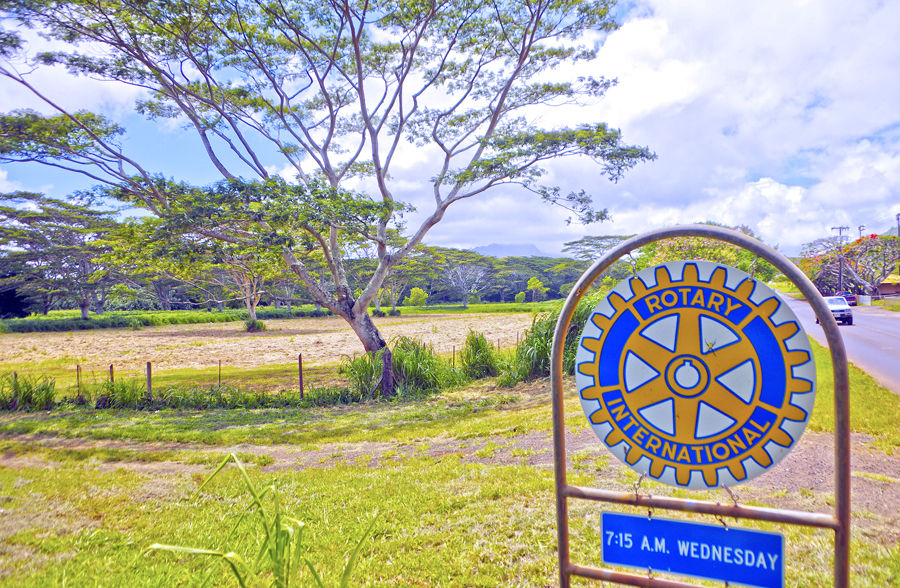LIHUE — Koloa Rum Company is one step closer to finding a new home and expanding its operations.
The seven-member Kauai County Planning Commission unanimously approved a pair of permits on Tuesday that will allow officials from the Kauai-based rum maker to move forward with plans to construct a new company hub across the street from Anne Knudsen Park in Koloa.
“Everything that we do at Koloa Rum, we tie to the history and the culture of Hawaii,” Koloa Rum Company President and CEO Bob Gunter said. “For us, it’s all about authenticity, it’s about Hawaii, and it’s all about our roots — what’s real. For us to have the possibility of being able to consolidate and relocate our facilities in or near Koloa — on land where sugar cane was originally cultivated for, perhaps, millennia — that, to us, brings it all together.”
The company operates a tasting room and retail store at Kilohana Plantation in Lihue but produces its signature rums, ready-to-mix cocktails and Kukui Brand jellies and preserves out of a facility in Kalaheo.
Plans for the company’s new hub include a 45,000-square-foot production facility, a 3,000-square-foot administrative office building, a 4,500-square-foot tasting room, a 30,000-square-foot interactive garden and a 4,500-square-foot cafe on about 17 acres of land owned by SKR, LLC.
Some nearby residents, however, had a number of concerns, ranging from potential noise issues and traffic congestion to waste disposal practices and buffer zones between the proposed facility and neighboring homes.
Koloa physician Dr. Michael Murray, who owns land close to the proposed project, said he supports development in the area but questioned whether it would be appropriate to place a facility that serves alcohol directly across the street from a park.
“I think the concept of fruit, sugar, employing the youth and multiple individuals on this island is very, very important, and I would support that side of it, but what is of concern to me is the alcohol,” Murray said. “I have spent the last 34 years for most of my day getting people to not drink excessively for any number of reasons. The only sticking point is its location relative to our youth, and that is a big concern to me.”
Gunter said native landscaping along the facility’s entrance should mitigate visual impacts of the facility and explained that people who sample alcohol on the company’s property must have their age verified and are only allotted one ounce of alcohol to taste per day in accordance with state and federal laws.
“We weren’t insensitive to the idea that across the street is a park,” County Planning Director Michael Dahilig said. “Part of why we did not have an issue with that is because parks are not dry areas — we’re the only county in the state that actually allows alcoholic beverages to be consumed on park facilities.”
Bill Hughes, who lives behind the proposed project, said he and other neighbors support land development in the area but are concerned about potential noise issues from distilling operations, where effluent would be discharged and whether fencing will be erected between the company property and their homes.
Koloa Rum Company Assistant Manager Danny Good said the used chemicals during the distillation process are randomly inspected every three months and destroyed.
Sugarcane stalks, he added, will be juiced and brought to the company’s factory, where it will be fermented and distilled. The excess cane will then be turned into mulch and used to fertilize company fields.
“Koloa Rum has always worked closely with our neighbors, and it’s a huge concern for us,” Good said. “We spend a lot of money to bring in inspectors to check us out to make sure we meet all of the qualifications.”
About 8 acres of the agriculturally zoned land would be used to cultivate sugar cane “and other crops necessary to produce the food products, including guava, pineapple, oranges, passion fruit, bread fruit, mango, ti and coffee.”
An on-site Americans with Disabilities Act-compliant pedestrian pathway along Maluhia Road toward Koloa should be required and included in the company’s development plans, county planning officials wrote in their report.
Now that the company’s initial planning permits have been approved, Gunter said company officials will review plans to ensure they comply with county and state conditions.
No specific completion date or timeline has been set, he said.
Kauai Planning Commissioner Wayne Katayama was recused from the meeting and did not vote on the company’s proposal.







